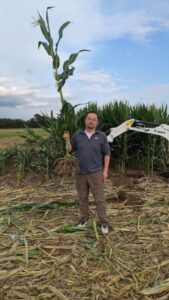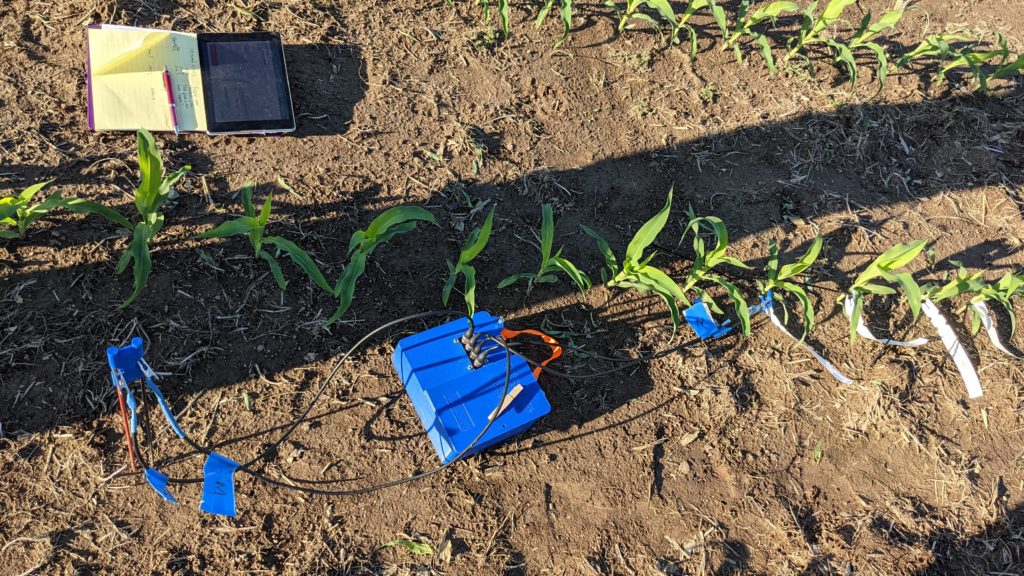View the original news release.
When a plant is beleaguered by drought, contaminated soils, or any other stressor, the earliest and best indicators are often not obvious in its leaves, or stems, flowers or fruit. For crops or houseplants, shrubs or grasses, the early-warning signs of stress are out of sight, out of mind in the last place anyone ever looks: underground in the plant’s hidden half, or its roots. Still, there’s not yet a way to inspect these roots without digging a plant up and tearing its hidden half to pieces, destroying the plant.
Now Berkeley Lab scientists have been recognized for a new sensing technology developed to assess crops by “seeing” into the soil while keeping a plant’s roots intact. TERI, Tomographic Electrical Rhizosphere Imager (TERI), placed first in a Grants4Tech competition that evaluated how novel sensing devices can collect key root trait data, such as mass, length, depth, and diameter of important agriculture crops, e.g. corn and soybean, in the field without disturbing the plant.
TERI, a project supported by the Department of Energy’s ARPA-E Rhizosphere Observations Optimizing Terrestrial Sequestration (ROOTS) program, was evaluated from October 4-8 alongside two competitor technologies at a Bayer agricultural facility in St. Louis. As the competition’s top winner, TERI’s development team received a €40,000 award with interests from Bayer Crop Science Division towards further developing the TERI system.

Berkeley Lab’s Geophysics Department Head Yuxin Wu, who is the PI of the ROOTS project and led the team in developing TERI, said “Because plant roots are hidden away underground beneath the soil, they are very difficult to quantify, and we often miss out on the early-warning signals that tell us a plant is not adapting well to environmental stressors, such as excessive drought, or maybe to the opposite: too much moisture.
“Imagine if we could measure these root traits without destroying a plant. That could help us to rethink plant cultivation from an entirely new angle, using an approach based on new knowledge of plant’s roots rather than merely above-ground traits such as its leaves or cross-pollination characteristics.”
Solutions like TERI, which before the final event of the Bayer competition had been field tested only on wheat crops in Oklahoma, are attractive to agricultural companies such as Bayer because they offer the chance to track root growth and health over time to understand how they adapt to changing environmental stresses which can influence crop yield and resilience to changing climate. TERI is a product of the EcoSENSE suite of novel-sensing technologies and capabilities developed at Berkeley Lab to explore plant-soil-microbe interactions across scales.
“If we can measure root traits without destroying them, it opens up a world of possibilities for better crop management and cultivation of new plant cultivars that are better adapted to certain conditions associated with a changing climate. For example, a crop with tailored roots that is able to tolerate many months of severe drought and then the occasional deluge of heavy rain. That’s a sustainable agricultural future worth working towards.”
